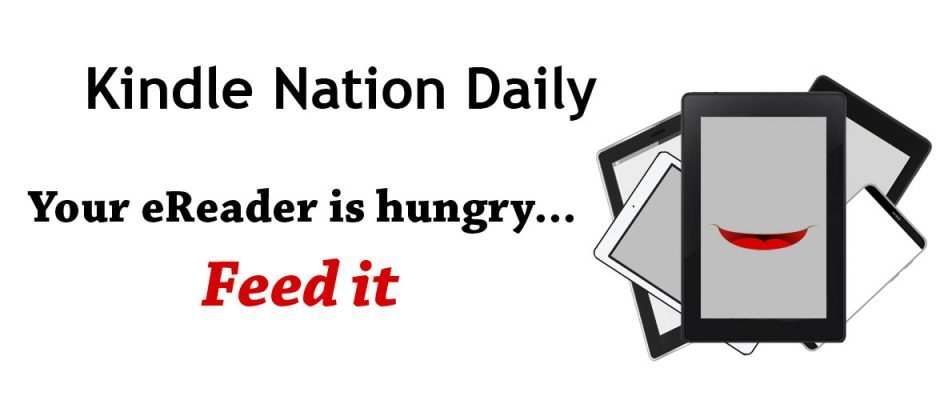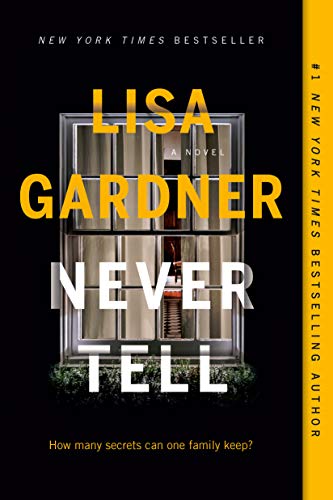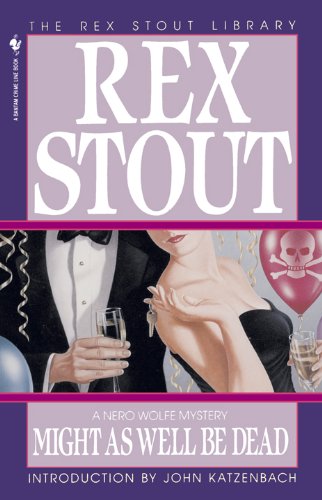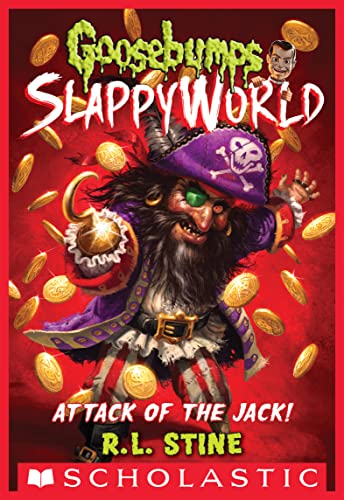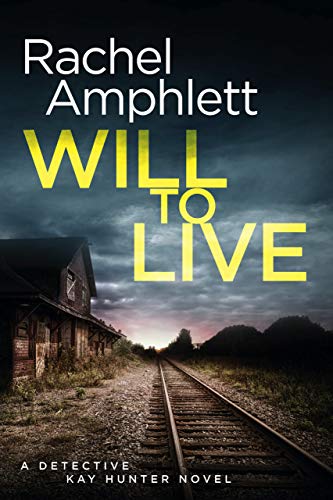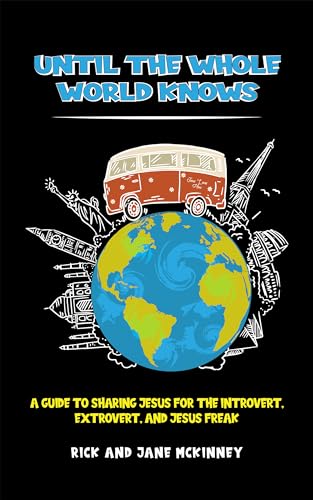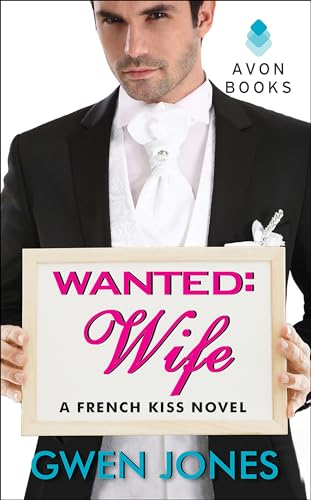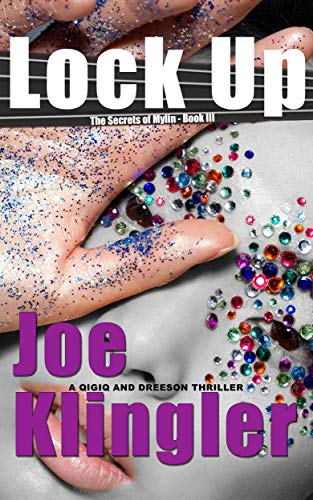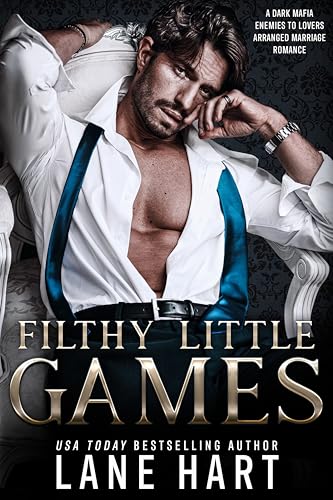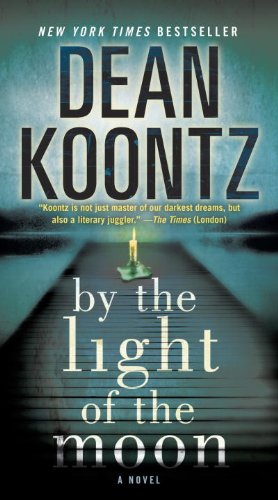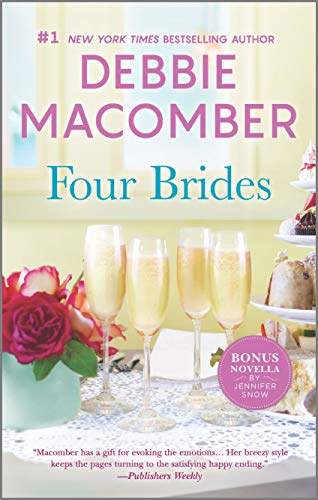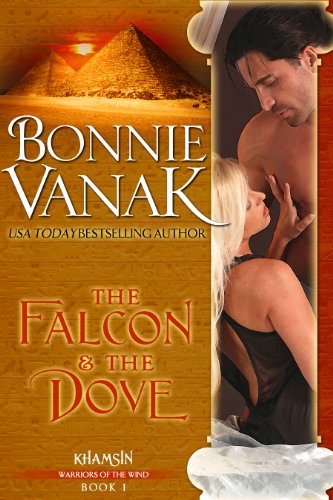Now we’re back to offer our weekly free Romance excerpt, and if you aren’t among those who have downloaded The Ruby Brooch, you’re in for a real treat:
From the white-plank fenced pastures of Lexington, Kentucky to the Bay of San Francisco, The Ruby Brooch, a time travel romance steeped in family tradition and mystery, follows a young woman’s quest as she attempts to solve the murder of her birth parents 160 years in the past.
As the lone survivor of a car crash that killed her parents, grief-stricken paramedic Kit MacKlenna makes a startling discovery that further alters her life. A faded letter and a well-worn journal reveal that she was abandoned as a baby. The only clues to her identity are a blood-splattered shawl, a locket that bears a portrait of a 19th century man, and a Celtic brooch with mystical powers.
After studying the journal, she decides to continue her father’s twenty-five year search for her identity and solve her birth parents’ murders. She adopts the persona of the Widow MacKlenna, a role she’s played in pioneer re-enactments, and a perfect cover for her eccentric behavior. Then she utters the incantation inscribed on the ancient stone and is swept back in time to the year 1852. She arrives in Independence, Missouri, one of the Oregon Trail’s jumping off points.
She soon meets Scotsman Cullen Montgomery, a San Francisco-bound lawyer who resembles the ghost who has haunted Kit since childhood. With Cullen’s assistance, she joins a wagon train heading west. The journey is fraught with dangerous river crossings, bad water, and disease. Nothing, however, is more dangerous than Cullen’s determination to uncover the source of her unusual knowledge and life-saving powers and expose the real Kit MacKlenna.
If she can survive the perilous journey and Cullen’s accusations and thwart his attempts to seduce her, she might find the answers she seeks and return home to a new life without changing history or leaving a broken heart on the other side of time.
This 19th century sensuous time travel romance comes complete with an ensemble cast who share a common goal. The children’s antics will make you laugh. The parents’ worries will make your heart pound. Kit and Cullen’s flirtatious banter will make you wonder what will happen between them. You’ll taste the dust from the trail, smell the burned coffee, feel the pain and tears when tragedy hits, and hear the cattle lowing. You’ll want to dance to the sound of the banjos and sigh at the sight of the sun setting over the prairie. You’ll share their hardships, their disappointments, and their celebrations. And at the end of the story, you won’t want to leave them behind.
Join Kit, Cullen, a handful of endearing animals, the Barrett family and Henry as they travel across this country by covered wagon. “If a man’s dreams could be painted,” Cullen said, looking out over a long line of wagons, “you’re looking at a masterpiece.”
* * *

* * *
And here, for your reading pleasure, is our free romance excerpt:
Prologue
Independence, Missouri, April 4, 1852
IN A SUNLIT corner of the cluttered Waldo, Hall & Company freight office, Cullen Montgomery sat tipped back on a chair’s spindly rear legs reading the newspaper and scratching a rough layer of morning whiskers.
Henry Peters slumped in a leather-reading chair and propped his legs, covered in faded cavalry pants, on a crate marked textiles and bound for Santa Fe. “What you learning ‘bout in that gazette?”
Cullen chuckled at what little real news the paper printed. Since he no longer lived in Edinburgh or Cambridge, he needed to lower his expectations when it came to the local press. Every word of the Independence Reporter had been read and reread, and although he couldn’t find mention of a scientific discovery or notice of a public discussion with a famous poet, he knew Grace McCoy had gotten hitched last Saturday. Reading the paper’s recitation was unnecessary. He’d escorted the bride’s widowed aunt to the nuptials and knew firsthand that the bride had swooned walking down the aisle. Virgin brides and widows. The former didn’t interest him, the latter lavishly entertained him.
He gave the last page a final perusal. “There’s no mention of our wagon train pulling out in the morning.”
The old soldier took a pinch of tobacco between his thumb and forefinger and loaded the bowl of his presidential-face pipe. “We ain’t got no more room anyways. No sense advertising.”
The day had turned unusually warm, and Cullen had dressed for cooler weather. Sweat trickled down his back, prompting him to roll his red-flannel shirtsleeves to his elbows. “Mary Spencer’s not going now. We can take on one more family.”
Henry dropped his feet, and his boot heels scraped the heart-of-pine floor. “Dang. Why’d you bring up that gal’s name?”
“It’s not your fault she disappeared.” Although Cullen hadn’t said anything to his friend, he believed the portrait artist he’d seen making a nuisance of himself at the dress shop had sweet-talked the porcelain-skinned, green-eyed woman into eloping.
“Maybe, maybe not.” The joints in Henry’s bowed legs popped and cracked as he stood and stepped to the window.
Cullen pulled out his watch to check the time. Before slipping the timepiece back into his vest pocket, out of habit he rubbed his thumb across the Celtic knot on the front of the case. The gesture always evoked memories of his grandfather, an old Scot with a gentle side that countered his temper. Folks said Cullen walked in his grandsire’s shoes. He discounted the notion he could be hotheaded, with one exception. He had no tolerance for liars. When he unveiled a lie, he unleashed the full measure of his displeasure. “We can’t worry about yesterday, and today’s got enough trouble of its own.”
“Rumor has it John Barrett needs money. Heard you offered him a loan.” Henry wagged his pipe-holding hand. “Also heard he got his bristles up, saying he wouldn’t be beholdin’ to nobody. Got too much pride if’n you ask me. You get down to cases with that boy and straighten his thinking out.”
God knew Cullen had tried. “If I can’t find a compromise, our wagon train could fall apart before we get out of town.”
“You’re as wise as a tree full of owls, son. You’ll figure it out.”
The newspaper had served its purpose so he tossed the gossip sheet into the trash. Then he stood and stretched his legs before starting for the door.
Henry rapped his knuckles on the windowsill. “Where’re you goin’?”
A queue tied with a thong at Cullen’s nape reminded him that his shaggy hair hadn’t seen even the blunt end of a pair of shears in months. “To the barber. Afterwards, I’ll figure out how to get your wagon train to Oregon. There’s a law office with my name on the door waiting at the end of the trail. I don’t have time for more delays.”
Henry’s bushy brows merged above his nose. “There’s more than work awaitin’ you.”
“To quote an old soldier: Maybe. Maybe not.” With the picture of a San Francisco, dark-haired lass tucked into his pocket alongside his watch, and the keening sound of his favorite bagpipe tune playing in his mind, Cullen left the office to solve today’s problem before it became tomorrow’s trouble.
Chapter One
MacKlenna Farm, Lexington, Kentucky, February 10, 2012
KIT MACKLENNA TOOK the brick steps leading to the west portico two at a time. When she reached the top step she slipped on a patch of black ice. Her arms and legs flailed rag-doll like, giving her some kind of weird location never intended for a human body. Forward motion ended abruptly when she collided with the farm’s marketing manager exiting the mansion wearing three-inch heels and her signature pencil skirt. Tucked under Sandy’s rail-thin arm was Thomas MacKlenna’s 1853 journal. Both women screamed. Sandy’s arms went up and the book hit the floor. And for the second time in less than thirty minutes, Kit landed on her ass.
“Oh, I’m so sorry.” Sandy helped Kit to her feet. Then she picked up the leather-bound journal, brushing ice crystals from its cover.
“My fault. I wasn’t paying attention.” Kit rubbed her sore butt. “That’s old Thomas’ journal, isn’t it? Did you read the proclamation to the staff?”
Sandy’s normally animated face brimmed with heartfelt concern. “The forty-day mourning period is officially over. But I’m not sure it will make your life any easier.”
Kit unbuckled her helmet and tugged on the dangling chin strap. “I woke up believing I’d feel better today, but I guess that’s my character flaw.”
“What is?” Sandy asked.
“Believing the impossible is always possible.” Kit slipped her hand into the pocket of her plaid bomber jacket and fingered a crumpled letter. “Every once in a while, impossible is just what the word means.”
Sandy squeezed Kit’s arm. “I know it’s hard, but you’ll get through this, too.”
Kit removed her helmet and shook her hair, pulling out a few long blond strands and a clump of mud. “Days like today make me wonder.”
Sandy gave her another reassuring squeeze. “I wanted to ask you something.” She opened the journal and pointed to a line in the proclamation. “This mentions a great-grandson born on the fortieth day? Do you know his name?”
Kit read the line above the marketing manager’s manicured nail. “There’s no record of a birth. Daddy said old Thomas was senile when he died. He probably imagined a grandson.”
“I wonder why no one ever made a notation in the journal.” Sandy snapped the book shut. “Whatever. Oh, by the way, I left the sympathy cards that came in this morning’s mail on the table in the foyer.”
A salty tear slid from between Kit’s eyelids and down her face, leaving behind a burning sensation on her wind-chapped skin.
Sandy pulled a tissue from her pocket. “Here, take this.”
Kit wiped her face and silently cursed that she no longer had control over her emotions.
“Everyone on the farm misses your parents and Scott. We’re grieving with you.”
“I know.” Kit blew her nose. “It’s made the last six weeks easier.”
“Well, call me later if you want to go to lunch or talk or cry. I don’t have broad shoulders like Scott, but I can listen.”
“I miss him bugging the crap out of me.” Kit scratched the scar on the right side of her neck, something she often did when she thought of her childhood friend.
“I can bug you, if you want. Since I don’t have your dad to pester, I feel sort of useless.” Sandy grasped the railing and made her way down the stairs. “Hey, what happened to your stick?”
Kit stooped and picked up her broken whip. “Stormy went one way. I went the other.”
Sandy cupped one side of her mouth as if sharing a secret. “Don’t tell Elliott. He worries about you enough.”
“The way news spreads around here, I’m sure the old Scotsman has already heard. He’ll find me soon enough and ream me out.”
“Don’t let anyone hear you call him old. That’ll tarnish his reputation.” A crease of amusement marked Sandy’s face. “Hey, did you hear what happened to his latest fling?”
Kit covered her ears. “TMI.” Half of Lexington’s female population gossiped about the sexual exploits of the serial dater. The other half made up the membership in the Elliott Fraser Past & Present Girlfriends’ Club.
Sandy eased her long legs into an electric cart. “Oh, I forgot. I returned your copy of Palm Springs Heat. Loved it.” She depressed the accelerator then gave a beauty-queen wave goodbye.
Kit mimicked the wave.
The former Miss Kentucky and marketing guru laughed. “A bit more wrist, sweetheart.”
“Pshaw.” Kit glared at the offending wrist that had been broken four or five times. She wasn’t the beauty queen type. She could ride a Thoroughbred bareback, but put her in a pair of strappy sandals and she’d get stuck in the mud. It wasn’t that she was clumsy. Just the opposite. Silly shoes couldn’t compete with her penchant for practical footwear. She lived on a farm, for God’s sake.
Before entering the house, she ran the soles of her tall riding boots across the blunted top edge of the boot-scraper. Then she turned the brass doorknob and gave the heavy oak door pockmarked with Civil War bullet holes a quick shove. It opened on quiet hinges into an even quieter house.
The scent of lemon oil permeated the twenty-foot wide entrance hall. Even as a child, she’d loved the smell. The room cast the appearance of a museum with a vast collection of furniture from the eighteenth and nineteenth centuries. Each piece darkened by countless waxings. Now that Sandy had read the proclamation, the cleaning staff could remove the black linen shrouds that draped the family portraits dotting the oak-paneled walls.
Kit dropped her helmet, crop, and muddy jacket on the rug, and then pulled off her boots, leaving everything piled by the door.
The letter.
She grabbed it from her jacket and stuffed the note inside her shirt pocket.
The side cabinet held a stack of sympathy cards. She blew out a long breath. People from all over the world sent condolences. Their thoughtful words tugged at her heart, but she couldn’t read them right now.
An official looking envelope from the Bank of San Francisco piqued her curiosity. It was incorrectly addressed to Mrs. Kitherina MacKlenna. She pried her nail beneath the sealed flap. Then the phone rang. Elliott? Avoiding him was impossible. He’d continue to call until she answered. She dropped the mail on the edge of the table and hurried down the hall.
On the second ring, she entered her father’s office. On the third, she plucked the receiver from the cradle. “MacKlenna Farm.”
“Do you have a cold, or are you crying?” Elliott asked in a voice that held only a hint of his brogue.
She propped a hip on a corner of the mahogany desk. “I strained my vocal chords last night singing all of Scott’s favorite songs.”
“Heard that squawking. Almost called the police.”
A faint smile eased the tension in her face. “You’re in rare form today.”
“I’ve been at a meeting with the board of directors.”
“Well, that explains it. Where are you now?”
“Driving through the main entrance. Stay put. We need to talk.” The line went dead.
“I need to talk to you, too,” she said, sassing the handset before dropping it into the charging cradle. The dang thing tumbled out and landed on the desk next to a Jenny Lind doll trunk. The bread-loaf-shaped trunk held that closed up for a long time smell that made her nose twitch. “Achoo.”
She smacked the lid closed and somehow pinged her finger on one of the brass nail heads that held a metal strap in place. Droplets of blood pooled beneath the tip of her nail. The injured digit automatically went to her mouth.
My accident prone morning finally drew blood.
She shoved off the desk and paced the room. When she heard the door knocker, she veered into the hallway. The canvases were now uncovered. Welcome back. Just as she’d done since childhood, she patted each one, saying their names in a sing-song manner: Thomas I, Thomas II, Sean I, Jamilyn, Sean II, Sean III, Sean IV, Sean V. She usually kissed the portrait of her father, Sean VI, on the cheek, but not today.
At the ripe old age of five, Kit had decided she wanted her portrait to hang alongside Sean I’s twin sister, Jamilyn, who died while sailing to America. Kit didn’t want her great-great-great-great aunt to be the only woman in the MacKlenna Hall of Fame. So she drew a self-portrait, then nailed it to the wall with wood screws she found in her daddy’s toolbox. She’d never forget explaining to her pony that she couldn’t ride for a month because she damaged the wall. She patted the blemishes between the portraits, still visible to those who knew they were there. Punishments and tragedies had never diminished her ability to take it on the chin—until now.
Elliott was visible through the front door sidelight standing on the porch wearing a green Barbour jacket and khakis with the usual knife-edge press. His aviators were tucked into the collar of his polo shirt. A MacKlenna Farm ball cap covered all but the sides of his freshly barbered hair. She kicked her boots and muddy jacket aside and opened the door. “Why’d you knock?”
“Door was locked. Didn’t have a key.”
“Sorry. I must have done that when I came in.”
Her godfather crossed the threshold, favoring his right leg. His expression was solemn and severe. She knew the old injury to his calf was especially sensitive to the cold. He removed his cap. Then as he raked his fingers through the silver hair above his temples, he sniffed the air. “Cleaning day.”
“Sandy just read the proclamation.”
“It’s done then.”
Kit pointed over her shoulder. “Mom’s portrait is uncovered. All the shrouds are gone.”
He glanced at the portrait hanging over the mantel. An equal measure of sadness and anger registered on his face. “That’s Sean’s best work. It never should have been draped.”
“I had to follow MacKlenna tradition. Daddy would have come back and haunted me if I hadn’t. The last thing I need is another one of those see-through people.”
“Sean MacKlenna as a ghost. That’s an intriguing thought.” Elliott hung his jacket and cap on the hall tree. When he spied her coat and boots on the floor, he clucked his disapproval. “Let’s go into the office and you can tell me why you came off your horse this morning. That’s twice this week.”
She held her breath a moment waiting for the lecture.
“Your horse showed up at the barn without you. Scared the grooms and trainers. If a hot-walker hadn’t seen you cutting through the tree line, every alarm on the farm would have sounded.”
She twisted a corner of her shirttail that had come untucked when she fell the first time. “The ghost spooked me at the cemetery. Stormy planted his feet and I went over his shoulders. Then I had to walk home with a sore back, a bruised ego, and that handsome apparition shadowing me. Again.” She glanced out the sidelight to be sure the ghost wasn’t still hanging around. “Today he looked like a nineteenth-century lawyer all decked out in a double-breasted frock coat. What’s up with him anyway?”
“I’m sure your ghost didn’t intend for you to fall.”
She elbowed Elliott in the side. “Get your tongue out of your cheek. I never know whether you believe me or not.”
“I believe you. But if you fall and break your back again, you might never get up.”
She rolled her tongue along the backside of her teeth to give it something to do instead of blurting out that she didn’t want Elliott or a ghost or anyone else hovering over her. She was a paramedic. The Lexington Fire Department trusted her. Wasn’t that proof enough she could take care of herself? “If you’re done with the lecture, tell me what the board of directors wanted.”
His face tightened. “It was a heated meeting. Hazy Mountain Stud wants to buy a controlling interest in Galahad. I don’t want to decrease the farm’s percentage of ownership in the stallion, but as CEO I only have one vote.”
“That means he’ll shuttle to the southern hemisphere every year. Daddy didn’t have a problem with that. I guess the board feels—”
Elliott reached over and patted her twice on the shoulder. “Don’t worry about it.”
She folded her arms, stiffened, then followed him down the hall. “If I had a dollar for every time Daddy told me not to worry, I’d have more millions than his estate.”
“And more Apple stock than me.”
“Haha,” she said, glowering at his back.
They entered the office. Elliott headed straight to the full-service wet bar located opposite a wall of floor-to-ceiling windows. “I suppose it’s too early for scotch.”
As if on cue, the long case clock in the corner sounded the hour.
“Nine o’clock is a bit early for me, but you might want a drink to wash down what I’ve got to tell you.”
He poured a cup of coffee instead and pointed it toward the desk. “What’s with the trunk? I’ve never seen it before.”
She lifted the lid. Small leather pouches filled with diamonds, gold nuggets, and coins lay on top of a bloodstained lace shawl. “Jim Manning’s office called late yesterday. He wants a copy of the 1792 land grant for probate. No one could locate the original. I searched the desk this morning and bingo. It was with this trunk.”
“I didn’t know there was a drawer that big.”
“There’s a secret compartment. Daddy showed it to me when I was a kid.” She framed an imaginary headline with her hands. “Heir learns secret at age of ten.” Her shoulders sagged. “He said never to open it until I was the farm’s mistress. Now I am and I still felt guilty doing it.”
“Thanks to that MacKlenna brainwashing, you feel guilty about everything. So what’d you find in the treasure chest? Gold doubloons?”
“Sort of. And a journal. And a letter from Daddy.” Her voice teetered on the verge of cracking. “He said he found me on the doorstep when I was a baby.”
Elliott muttered, shifting uneasily on his bad leg. “We both—” He cleared his throat. “—found you asleep in a Moses basket.”
The heat of confusion burned through her. “You knew?”
A wistful expression deepened the fine lines on Elliott’s chiseled face. “Sean asked me never to tell you.”
“Don’t you think I had a right to know?”
Elliott stared into his coffee and pulled his lips into a tight seam.
She pointed her finger at him. “You know what’s in the trunk, don’t you?”
“Did he save the shawl?”
The confirmation in the form of a question stung her far beneath the skin.
“I thought you were hurt, but the blood was on the shawl, not you.” He set his cup on the desk and picked up the ruby brooch Kit had taken from the trunk earlier that morning. “This was pinned to your dress. I haven’t seen it since we found you. I didn’t search the basket. Sean said he would do that.”
“I found a book on Celtic jewelry in Daddy’s library. That’s a fourteenth-century brooch. The letter said it’s magical. Do you believe that?”
Elliott picked up a portrait miniature of a blond-haired, nineteenth-century man, studied the face, set the painting aside, and then ran a finger across the two-inch ruby set in delicate silver work.
“I’ve studied our folklore most of my life, Kitherina. I believe there’re forces in the universe we can’t see or understand. If Sean said this is magical, I have no reason not to believe him.” Elliott turned the brooch over and studied the back of the stone. “My grandfather used to say, ‘Some see darkness where others see only the absence of light.’”
She drew in a breath. “Meaning?”
He placed the brooch in her hand and curled her fingers around it. “Keep an open mind.”
“That’s what Daddy said in his letter before he said this thing took him back to 1852.”
Elliott’s face lost its color. “Where’s the letter?”
Kit pulled it from her pocket and nudged his arm. “Here.”
Lines formed between his eyebrows. “You made a paper airplane out of it?”
She glanced at the blister on her knuckle. “With sharp creases, just like you taught me. Then I flew it into the fireplace. It crashed on its side or the whole thing would’ve caught on fire.” She walked over to the wet bar to grab a bottle of water. “My grief counselor would probably call it a form of disassociation. Burned my finger when I pulled it out.” Her finger hurt like hell. “Read it out loud. It might make more sense hearing it from you.”
Elliott smoothed out the folded letter and began with a quick throat-clear. “Dear Kitherina, I’m writing this knowing you may never read it, but I can’t risk dying without telling you the truth of your birth. Please keep an open mind as you read.
“You were only a baby when I found you on the steps of the west portico, wrapped in a bloody lace shawl. At first, I thought you were bleeding, but you weren’t. You had a ruby brooch pinned to your dress and a portrait miniature clutched in your hand. Both the portrait’s gold frame and the shawl have a monogrammed M worked into their design.”
Elliott carried the letter and cup of coffee across the room and sat in a tufted, hunter green, velvet wing chair situated just so in front of the fireplace. He took a sip and continued. “Not long after your second birthday, I discovered whoever made the brooch had split the ruby and hinged the halves together. Engraved inside is a Celtic inscription: Chan ann le tìm no àite a bhios sinn a’ tomhais an gaol ach ’s ann le neart anama.”
Elliott lowered his hand to his lap and she could tell he was thinking hard. Then he said, “‘Love is not measured by time or space. Love is measured by the power of the soul.’ At least that’s my best translation.”
Kit dropped onto the ottoman in front of him. “I wondered what it meant.”
He took another sip of coffee. “When I read those words out loud, I was instantly propelled toward amber light. I found myself in Independence, Missouri, in the spring of 1852. The city was a major jumping off point for those traveling the Oregon Trail. That year alone, there were over fifty thousand people heading west, so you can imagine the crowds in the city. Since I was there for several weeks, I painted portraits to earn money for room and board. I also painted from memory the face of the man in the portrait miniature and showed it to everyone I met. Although a few people thought he looked familiar, no one was able to identify him.
“When I decided to return home, I repeated the words. I had no way of knowing if the brooch would take me home, but neither did I understand why it had taken me to Independence to begin with, although I am thankful it did. The brooch is, however, your legacy, not mine.”
Elliott leaned forward, pressed his elbows into the arms of the chair, gripped the letter between his hands, and continued reading. “I’ve spent over twenty years researching 1852, Independence, and the Oregon Trail, but I’ve found no mention of a missing ruby brooch or a disappearing baby. If I had discovered evidence of one or the other, I would have gone back. If a lead existed, it has been lost to history by now.
“I had the bloodstains on the shawl tested. The DNA profile was compared to a sample of your DNA, and there is a genetic match. The blood belonged to your birth mother. I’m sorry I can’t offer you more to help you understand where you came from, but I know where you belong, and that’s on MacKlenna Farm.” Elliott’s hands shook as he ended the letter. “Even though you weren’t born a MacKlenna, you are one—the ninth generation.” He dropped the paper on the table next to the chair. Color drained from his face. “I’ll have that scotch now.”
Kit picked up the letter and slipped it between the pages of the journal. “You and Daddy were friends for over forty years. You believe this is true, don’t you?”
Elliott poured two fingers of scotch and tossed them back in a single swallow. “Sean never lied to me.”
“Well, he lied to me,” she said, her voice cracking. She dropped the journal on the desk next to a photograph of her show jumping at the 2010 World Equestrian Games in Lexington. The tips of Kit’s fingers traced the smooth edges of the frame. “If I had died in the crash too, this information never would have surfaced.” The normal steel in her voice melted into a gray puddle at her feet.
Elliott shuffled to her side and wrapped his arms around her—arms that had held her through boyfriend breakups and broken bones and burials.
“Daddy raised me to believe in a code of honor. Keeping a secret like this goes against everything he taught me.” Her eyes filled with drowning grief. “I hurt, Elliott. I hurt because my parents and Scott are dead. I hurt because my parents didn’t tell me about this. I hurt because I don’t bleed MacKlenna blood. My life has always been about bloodlines and pedigrees. We know our stallions’ dams and sires.” She thumped her chest. “Who sired me? Who?”
The winter wind ceased, and the skeleton branches no longer thrashed against the side of the house. “Damn it,” she said, breaking into the silence. “It would have been so different if I’d known all my life that I was adopted. I wouldn’t have bought into this two-hundred-year-old family legacy if I’d known I wasn’t really one of them.”
Elliott punched his fist into his palm. “You’re wrong, young lady. You’re as much of a MacKlenna as those old men whose pictures are hanging in the hallway.”
She grew quiet as a dozen thoughts bunched up like racing Thoroughbreds along the rail. “You don’t get it, do you?”
His deep brown eyes held a puzzled look. “I get it. I’m not sure you do. You’re still Kit MacKlenna. It doesn’t matter who your birth parents were. You’re now the heart and soul of this farm.”
The wind started up again, blowing hard and swirling around the house with a mournful cry. Kit pushed away from him and faced the window. Her fingers dug into the thick drapery panels. She pulled them aside, allowing a shaft of outside gloom to peek through.
“What’s in the journal?” Elliott asked.
Glancing over her shoulder, she offered him a smile—a tense one, without warmth or humor. “After I read the letter, I couldn’t read anything else.”
He swept his hand toward a pair of sofas that faced each other. “Let’s sit and look through it. There might be something in there to make you feel better about this news.”
From her position at the window, she could see her mother’s winter garden—stark and bare. “That’s unlikely.”
He put his arm around her. “Come.”
They settled into the thick cushions, a signal to Tabor, a brown tabby Maine Coon, to jump up between them and perch on the back of the couch. “Get down, Tabor,” Kit said. The cat jumped to the floor and sauntered over to a corner of the room.
“Your mom spoiled him. I’m surprised he listens to you.”
“He doesn’t. He’s scared of you. He thinks Dr. Fraser is going to give him another shot.”
“Memory like an elephant.” Elliott gave Tabor a thoughtful glance, then flipped to the first page of the notebook where Sean had written 1852 Independence, Missouri. The next pages contained pencil sketches. Shops on the right, a grid of roads around a town square on the left.
She pointed to one of the buildings. “Look at the woman in that window. Who does she look like?” Kit opened the drawer in the table next to the sofa, rifled through the contents until she found a magnifying glass and then held it over the picture. She gasped. “Good God. It’s Mom. Why’d he sketch her there?”
Elliott grabbed the glass and squinted through it, then regarded Kit with narrowed eyes. After a moment, he returned his gaze to the drawing and said, “Sean drew Mary’s face when he doodled, just like you draw Stormy.”
Kit turned to the next page and began to read. With a gulp of surprise, she grabbed Elliott’s hand, demanding, “Listen to this. ‘I met Mary Spencer the day I arrived in Independence.’” Kit could barely move, feeling as if her joints had frozen where she sat. “What’s he saying, Elliott? That Mom was from the nineteenth century? But that’s impossible.”
He placed his other hand over hers and squeezed. “You’re the one who believes the impossible is possible.”
“Yes, but—”
“If we had told you we’d found you on the porch, you would have wanted to know what steps were taken to find your birth parents. Sean wasn’t going to tell you that he’d found a way to travel back in time. If he had, would you have believed him?”
“An act of omission is still a lie and MacKlennas don’t lie.” The revelations stripped away the bare threads of her self control. She jumped to her feet and whipped her head around so fast her ponytail smacked her in the chin. The room folded in on her. If she didn’t get air she would suffocate. She staggered to the French doors, pushed them open, and stumbled onto the portico.
Elliott stood in the doorway. “Come back in here. Let’s talk about this.”
The fingers in her right hand tensed into a fighting fist. “Go to hell.”
A moment later, the doors clicked shut.
She pounded her fist on the railing as she stared out over the rolling hills covered with frost-tipped Kentucky bluegrass. Her stomach roiled, but she kept down the little bit of food she’d eaten at breakfast. Why has this happened? She closed her eyes, but darkness couldn’t halt her father’s words from flashing strobe-like across her brain.
When her eyelids popped open, she spotted her ghost. He stood under the pergola in the garden, rubbing his thumb across the front of his watch case. A gesture she’d often seen him make. He stretched out his arm, beseeching her to come to him.
“What do you want?” The panic in her voice reminded her of the little girl she had once been, sprawled on the ground after falling from her horse—scared, but not of him. A sob tore from her throat. “There’s nothing you can do.”
He slipped his watch into his pocket, gazed once more into her eyes, then faded away.
Sometimes life is nothing more than a photo album full of goodbye pictures. She stepped back into the house, an empty house, where unlike her ghost, the hurt and the heartache would never fade away.
THAT NIGHT, BAD dreams woke Kit from a fitful sleep. She flipped on every light switch between her bed and the kitchen where she listened to Bach and made a pot of herbal tea. The cup rattled against the saucer as she walked to the office with Tate, her mother’s golden retriever, leading the way.
“Where were you when I was fighting the bad guys in my dream?” she asked the dog.
He gave a little whine and lowered his head. Drops of tea splattered to the hardwood floor, and he licked them up.
“I don’t like the bad guys any better than you do.”
He barked.
“Okay. I’m glad we’re straight on that.”
When she entered the office, she spotted the trunk still sitting open on the desk—a trunk full of clues to her identity that led nowhere. Could she, like her father, spend twenty years searching historical records? No, she couldn’t. She’d chew off all of her fingernails. Patience was a limited commodity in Kit MacKlenna’s world.
She sat in her father’s chair and opened the journal. There were pages of research notes; tangents he’d followed and later abandoned, others he’d clung to for years. From all of his research, he believed her birth parents had traveled the Oregon Trail in 1852, but he couldn’t prove it. He couldn’t find that one piece of evidence that linked her to a family. No missing ruby brooch. No missing baby. His exhaustive research had ended five years earlier.
Five years. Did Daddy stop looking before or after the attacks? She rubbed the scar on the left side of her neck. Probably afterwards.
Kit sat back, pressed her warm palm against her forehead, hoping the pressure would supplant the tension headache. Wasn’t there more information on the web now than years earlier? Of course there was. Well, if she was going to continue her father’s research, then all she had to do was dig into the time period between when he stopped working on the project and now.
How long will it take? She sighed, unsure of anything other than her losses were wavering at an emotionally dangerous level. What she desperately needed was a sense of control and a good working plan. Quickly, feeling ideas germinating, she snatched pen and paper from the desk drawer.
Step One: Send an email to the professors and historians listed as contacts in the journal. They would know of any new diaries or letters. Step Two: Email historical societies. Step Three. She sat straight in the chair. Forget step three until one and two are exhausted.
After bringing order to her thoughts, she fired off a group email to her father’s contacts, then went back to bed, praying she wouldn’t have to outline Step Three.
LATER THAT DAY, Kit checked her email. There was a response from the Oregon-California Trails Association. She held her breath and opened the email.
The Barrett family donated an 1852 Oregon Trail journal to the Portland Historical Society three years ago. To read the online version, click here.
She took a deep breath, then clicked the link.
The author, Frances Barrett, wrote in sloppy print as she described the weather, food, and breath-stealing dust. Halfway through the June 1852 entries Kit read:
June 16, 1852 South Pass. Mr. Montgomery found a wagon train full of murdered folks. Mr. and Mrs. Murray’s baby girl is missing.
Kit’s heart pounded in her ears. The monogram on the locket and shawl had the letter M. What were the odds of finding parents with a missing baby and a last name beginning with that letter? Her insides were frantic now, unnerved by information that slashed through her composure.
It took several minutes to rein in her thoughts. Finally, she typed a return email and copied all of her contacts asking for information about the Murray family who had traveled west in 1852. And she specifically requested information about a wagon train full of murdered people discovered in South Pass in June of that year.
All she could do now was chew her thumbnail and wait.
KIT SLUMPED IN the desk chair, twirling the end of her ponytail around her finger, frustrated that none of her emails two days earlier had provided answers. In her periphery, she spotted Elliott standing in the doorway. She hadn’t spoken to him since telling him to go to hell.
“We need to talk.” He shuffled to the wet bar. “Do you want some coffee?”
“I’m off caffeine.”
“Still having nightmares?”
“Yep.”
He poured himself a cup, then stirring sugar into the brew said, “I know you’re upset, but Sean asked me not to tell you.”
“A course of action you obviously championed.”
Elliott’s chest rose with a deep inhale, but his steady gaze never faltered. “I’m your godfather, Kit. Not your father.”
She continued twirling her hair.
“So what’s kept you locked up in here? Research?”
“You know exactly what I’ve been doing. You’ve been here late at night reading my notes.” She pointed to an empty mug on the desk. “You could have cleaned up after yourself.”
He tossed the stir stick onto the counter. “You left the notes out for me to read.”
“So what do you think?
“None of your trail experts have read another journal mentioning murdered people in South Pass—”
“They call the entry an anomaly.”
“I call it possibly fabricated.”
“That makes no sense. Not when the rest of the entries are consistent with what others wrote in their journals. And why—” She straightened to give depth and conviction to her voice. “—would Frances Barrett make it up?”
He arched his brow, seeming to look right through her.
“Stop looking at me like I’m crazy.”
“I’m not—”
“I want to believe her, dammit, even if no one else does. And because I believe her, I think it’s unfair that people were killed and there’s no historical record. The gold and diamonds in the trunk probably belonged to the Murrays and should go to their heirs.”
“Let’s say the story is true and you’re the Murray’s missing baby. Legally, the treasure would belong to you.”
“I don’t care about it. I just want answers.” She stood and paced the room, stomping her feet on the hardwood floor. Finally, she said, “If I had a picture of Mr. Murray I could compare it to the portrait.”
Elliott took another swallow of coffee, then studied the contents of his cup as if he were reading tea leaves. “Go take one. Sean went. Why don’t you? I’ll even go with you.”
She gave him a dry laugh. “You want a nineteenth-century wife, too?”
“No, thanks. I like being a bachelor.” He sat on the arm of the sofa while she continued to pace in small circles. “Look…I don’t know whether the Barrett journal is true, but I know your father’s story is. If you’re looking for a logical explanation, you’re not going to find one. The Barrett journal is-what-it-is and the brooch holds an ancient Celtic secret. That’s hard to grasp.”
“I’ve had a ghost following me around since I was ten. The natural and supernatural coexist in my world.”
“Look at the way your parents raised you. You’ve been attending pioneer re-enactments your entire life. You can ride, shoot, and yoke the oxen as well as your father. Why’d he insist you learn to do that? Why’d he direct you toward the medical field? Why’d your mother teach you how to cook over a campfire? You probably never noticed how your speech pattern changes when you’re out on the trail. You turn into a nineteenth-century woman.”
He sipped his coffee and they were quiet for several minutes. “You may not want to hear this, but your father raised you to make this trip, or more accurately, to make a return trip. Sean would have told you the truth when he knew you were ready. Knowing him, I suspect he intended to go back with you someday.”
Elliott picked up a legal pad and thumbed through the pages. “When did Frances Barrett say those people were killed?”
“June sixteenth. Why?”
“Well, look, if you went to South Pass—”
“Have you ever been to South Pass, Wyoming? It’s a wide-open space now. Can you imagine what it looked like in 1852?”
“No. But if you could get there by June sixteenth, you could see if anyone matches the little painting, get a hair sample for DNA and then come home. You’re a paramedic. Dead bodies don’t bother you.”
She shuddered and tried to block out the memory of her parents’ vacant eyes staring at her moments after the crash. “I’ve seen my share. They’ve all bothered me.”
“That’s not what I meant.”
She paced the room, biting her nail. “If I went back in time—and I’m not saying I’m going—but if I did, the tricky part would be arriving in South Pass by the sixteenth.”
“When did Sean go back?” Elliott moved to the desk and put his feet up. “Sometime in the spring, wasn’t it? If you go back in March or April that would give you plenty of time to get to Wyoming, assuming the brooch takes you to the same place it took him.”
She turned again and headed toward the window. “Do you really think I could do it?”
“Well, you can’t change history or what happened in South Pass. That might obliterate your life in the twenty-first century. But yes, you’re physically able to handle the journey.”
Kit stopped pacing and stared at Elliot. “Okay, I’ll get the brooch and go.”
“Whoa.” He put his feet on the floor. “You can’t go off unprepared. We know from the journal that Sean returned with Mary and a covered wagon. So it seems logical that you can take supplies and emergency equipment with you.”
“You make it sound like I’m going off to a third-world country.”
“You’ve been on the trail. You know how primitive it can get. This isn’t a reenactment. It’ll be worse.” He leaned forward and put his elbows on his knees. “Look, I know you. You’ll never be settled until you have the truth. If you go, I’d like to go with you.”
“If I decide to go, you can’t. You’ll need to cover for me, especially with Sandy.”
“And let you go off and have all the fun? That’s not going to happen.”
She’d sneak off without him, of course. As much as she’d love to have Elliott along, she wouldn’t put him through a rigorous trip while he was recuperating from his fourth leg surgery in five years and facing another one before the year ended. If she went, she’d go alone.
KIT MULLED OVER her predicament for several weeks while devouring every word of her father’s journal. Then in the early morning hours of April Fools’ Day she rolled out of bed drenched in cold sweat. In a dream, she’d heard the voice of a young woman crying out for help.
Unable to go back to sleep, Kit wandered to the kitchen and steeped a cup of tea. Tate trotted into the room and whined to go outside. She opened the back door and stood there, arms folded, watching the sun peek above white-planked paddocks. The air smelled of horses and freshly turned earth. Tears slipped down her cheeks. It didn’t seem fair that their stallions could trace their line back over three hundred years to three foundational stallions, but she couldn’t draw a line back to her roots. She didn’t know where they were. Somewhere in 1852. Maybe.
The not-knowing tied her up tighter than the twine wrapped around the bundle of old newspapers stacked at the door. As she wiped away a tear, she recalled a quote by Anaïs Nin. The words swirled inside her mind and tasted sweet on her tongue.
And the day came when the risk to remain tight in a bud was more painful than the risk it took to blossom.
She slapped the door with the palms of her hands. Not knowing her identity was more painful than the risks she’d take going back in time. And at that singular moment, she knew what she would do. Not what she had to do, but what she chose to do.
KIT HUSTLED OUT of the house shortly before sunrise for her usual horseback ride around the farm. This morning though, she rode straight to the old tobacco barn where her supplies were already stowed in the covered wagon. After yoking the oxen used in the annual Old Kentucky Farm Days Celebration, she tied Stormy to the tailgate, slipped a nineteenth-century yellow gingham frock over her jeans, and shoved her flannel shirt into her carpetbag. A shiver of anxiety coursed through her as she removed the brooch from its velvet-lined box and tucked the jewelry into her pocket.
She climbed up on the wagon’s bench seat with her to-do list in hand. One item remained unchecked: tell her parents goodbye. She snapped the whip over the heads of the oxen and the team lumbered across the pasture toward Cemetery Hill.
At the crest of the knoll, pockets of a shimmering blue fog rose from the ground leaving only the tip of Thomas MacKlenna’s monolith visible in the pre-dawn light. Kit gathered her shawl around her, warding off the strong current of air that lifted dead leaves in upward spirals.
Something wavered in the tree line. She gasped. Why is he here now?
Her blue-eyed ghost carried a shovel. Another apparition who resembled the first Sean MacKlenna appeared and together they glided across Cemetery Hill. Then her ghost rammed his shovel into the ground surrounding old Thomas’ monolith, marking the burial site as if it didn’t already exist.
“What’re you doing?” Kit asked.
Her ghost held his hand out toward her, but she shook her head and kept her distance. The Sean MacKlenna look-alike put his arm around her ghost’s shoulder and together they faded into the mist.
She shivered. This is probably a good time to leave.
When she pulled the brooch from her pocket, the stone warmed both her palm and her mother’s wedding band she had worn on her right hand since the funerals. A notation she’d made in her notes popped into her mind. Getting help will be easier if I pretend to be a widow. She switched the ring to her left hand, feeling a twinge of guilt. How can this hurt anyone? It probably wouldn’t, but it was a lie. Once she started down that thin edge of a wedge, as her Granny Mac used to say, telling the next one would be easier.
She opened the stone as her father had described in his journal and read the Gaelic words aloud. “Chan ann le tìm no àite a bhios sinn a’ tomhais an gaol ach ’s ann le neart anama.” Tendrils of mist, carrying the scent of heather and peat fires, wrapped her in a warm cocoon.
Tate barked, the wagon jerked, and dog tags jingled.
A swirling force propelled the wagon forward into amber light, taking Kit who-knew-where with six oxen, a Thoroughbred, and a high-spirited golden retriever.
